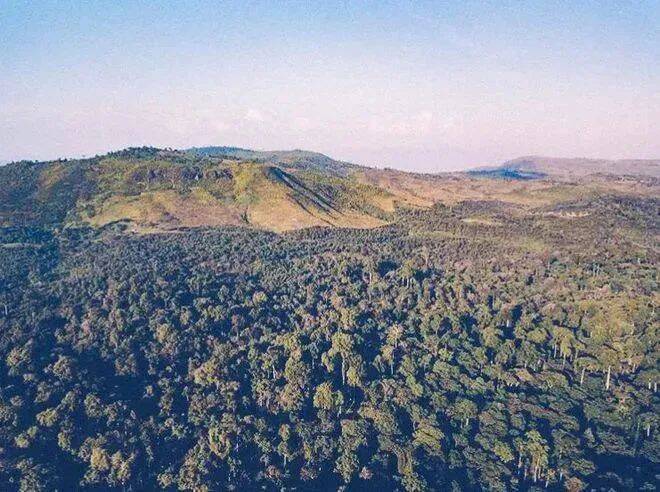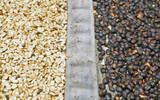Egypt sends weapons to Somalia again! Tensions intensify in eastern Ethiopia
According to media reports, tensions in the Horn of Africa have escalated again, and Egypt has recently delivered a new batch of important military aid to Somalia, including heavy artillery, anti-tank weapons and armored vehicles, as part of a bilateral defense agreement signed between Egypt and Somalia in August 2024.
According to a statement issued by the Egyptian Foreign Ministry, this batch of Egyptian military aid has arrived in the Somali capital Mogadishu to support and strengthen the military capacity of the Somali army. This shipment proves once again the central role played by Egypt in supporting Somalia in developing national capacity to meet the expectations of the Somali people for security, stability and development. Later, the Somali Defense Minister posted photos of the unloading of Egyptian warships on social media.
It is reported that this is the second time that Egypt has sent arms to Somalia. in August this year, Egypt signed a protocol on military cooperation with Somalia and expressed its willingness to send troops to participate in a new peacekeeping mission in Somalia. after that, the first batch of military assistance to Somalia in more than 40 years was provided at the end of August.
The move is related to disputes between Egypt, Somalia and Ethiopia. In January this year, Somaliland reached an agreement with Ethiopia in exchange for leasing the port of Berbera in the Gulf of Aden in exchange for Ethiopia's recognition of Somaliland as an independent country in the international community. A federal state in Somalia, Somaliland, declared itself "independent" in 1991, but has long been recognized by society and the mission state. The Government of Somalia is therefore dissatisfied with the signing of the agreement between Ethiopia and Somaliland as a violation of Somali national sovereignty.
Relations between Egypt and Ethiopia have also been strained because of disputes over the revival of the dam. The Fuxing Dam is located on the Blue Nile, one of the two major sources of the Nile, and its source of water is located in Ethiopia near the border with Sudan. Egypt is worried that this will affect the flow of water sources of the Nile. As a result, the three countries have disputes over issues such as the distribution of power by hand and the rules for the operation of the dam, and it is still not difficult to reach a solution.
At present, the Minister for Foreign Affairs of Ethiopia expressed concern about Egypt's second arms shipments to Somalia, believing that ammunition and these weapons provided by external forces could further aggravate the fragile security situation in the region and eventually fall into the hands of terrorists.
In addition, the Government of Somaliland expressed serious concern about the shipment, and its Somaliland Ministry of Foreign Affairs expressed deep shock at the transfer of these weapons, in particular the lack of capacity of the Government of Mogadishu to effectively manage or protect such an important military. According to early reports, Egypt has begun to deploy officers and equipment to the Somali capital Mogadishu, and may plan to station as many as 10,000 Egyptian soldiers in Somalia.
As a result, the current situation has led to a continued escalation of tensions in the region and the possibility of conflict at any time. Earlier, the Egyptian Embassy in Somalia has warned Egyptian citizens not to travel to Somaliland. The conflict may have broken out in the Somaliland region, so Djibouti, which is adjacent to the Somaliland region, is also worried about being affected.

The current situation is very disadvantageous to the Ethiopian country, and there are internal and external troubles in the country, the conflict in the north of the country continues, the conflict begins to spread to the south, the coffee producing areas in the west are affected, and the tension between the east and Somalia, this will have a serious impact on many industries in Ethiopia, especially the coffee industry. If the conflict breaks out and poses a serious threat to eastern Ethiopia, the coffee-producing region of Haller, near eastern Ethiopia, could endanger the coffee industry in the war zone.
In addition, since Ethiopia is a landlocked country with no access to the sea, maritime trade is very dependent on the port of neighbouring Djibouti. Therefore, if the conflict spreads to Djibouti, it will seriously affect the operation of its ports and the situation of entrances and exits. Currently, the Ethiopian Coffee and Tea Administration reported that 42322 tons of coffee were exported in August, a record high. Compared with the same period last year, exports in these two months increased by 32925 tons, an increase of 66%, and income increased by US $110 million, an increase of 41%.
However, some traders pointed out that the current surge in Ethiopian coffee is due to the sharp depreciation of the Ethiopian currency Bill's exchange rate as a result of the country's newly released reforms, but the price of coffee beans has not risen significantly, thus enabling traders to buy Ethiopian coffee at a cheaper price. In addition, the EU no-deforestation policy EUDR will be formally implemented on December 31, 2024, and many small farmers in Ethiopia may not meet the standards, so before the implementation of the policy, international traders increase their procurement efforts to ensure inventory. However, if conflicts break out in the future, port conditions are damaged, and the formal implementation of EUDR, it will seriously affect the export of products such as Ethiopian coffee.
For more information about coffee producing areas, please scan the code directly and follow: coffee comments.
Long press the QR code to follow:
TRANSLATE with
XEnglishArabicHebrewPolishBulgarianHindiPortugueseCatalanHmong DawRomanianChinese SimplifiedHungarianRussianChinese TraditionalIndonesianSlovakCzechItalianSlovenianDanishJapaneseSpanishDutchKlingonSwedishEnglishKoreanThaiEstonianLatvianTurkishFinnishLithuanianUkrainianFrenchMalayUrduGermanMalteseVietnameseGreekNorwegianWelshHaitian CreolePersian
TRANSLATE with
COPY THE URL BELOW
BackEMBED THE SNIPPET BELOW IN YOUR SITE Bing Webmaster PortalBack
Important Notice :
前街咖啡 FrontStreet Coffee has moved to new addredd:
FrontStreet Coffee Address: 315,Donghua East Road,GuangZhou
Tel:020 38364473
- Prev

Why are washed coffee beans more sour than sun exposure? How to say washed sun-dried coffee in English?
As common terms in the industry, sunning and washing are the two most mainstream processing methods in coffee production, and they are also the two most accessible treatments for many newcomers. For those coffee lovers who are not practitioners, although the names can easily determine that the two represent different things, there will be differences.
- Next

Where is Brazilian coffee mainly distributed? What are the advantages of growing coffee in Minas?
When it comes to coffee, Brazil cannot be avoided. After all, Brazil is currently the world's largest coffee producer and exporter, accounting for one-third of the world's coffee production, so it has the title of "Coffee Kingdom." This is due to Brazil's vast land. Although most of the land is plain and the overall altitude is not high, its soil is fertile and the country is very fertile.
Related
- What grade does Jamaica Blue Mountain No. 1 coffee belong to and how to drink it better? What is the highest grade of Blue Mountain coffee for coffee aristocrats?
- What are the flavor characteristics of the world-famous coffee Blue Mountain No. 1 Golden Mantelin? What are the characteristics of deep-roasted bitter coffee?
- Can I make coffee a second time in an Italian hand-brewed mocha pot? Why can't coffee be brewed several times like tea leaves?
- Hand-brewed coffee flows with a knife and a tornado. How to brew it? What is the proportion of grinding water and water temperature divided into?
- What is the difference between Indonesian Sumatra Mantinin coffee and gold Mantinin? How to distinguish between real and fake golden Mantelin coffee?
- What does bypass mean in coffee? Why can hand-brewed coffee and water make it better?
- Unexpected! Ruixing Telunsu lattes use a smoothie machine to foam milk?!
- % Arabia's first store in Henan opens into the village?! Netizen: Thought it was P's
- Does an authentic standard mocha coffee recipe use chocolate sauce or powder? Mocha Latte/Dirty Coffee/Salty Mocha Coffee Recipe Share!
- What is the difference between Vietnam egg coffee and Norway egg coffee? Hand-brewed single product coffee filter paper filter cloth filter flat solution!

